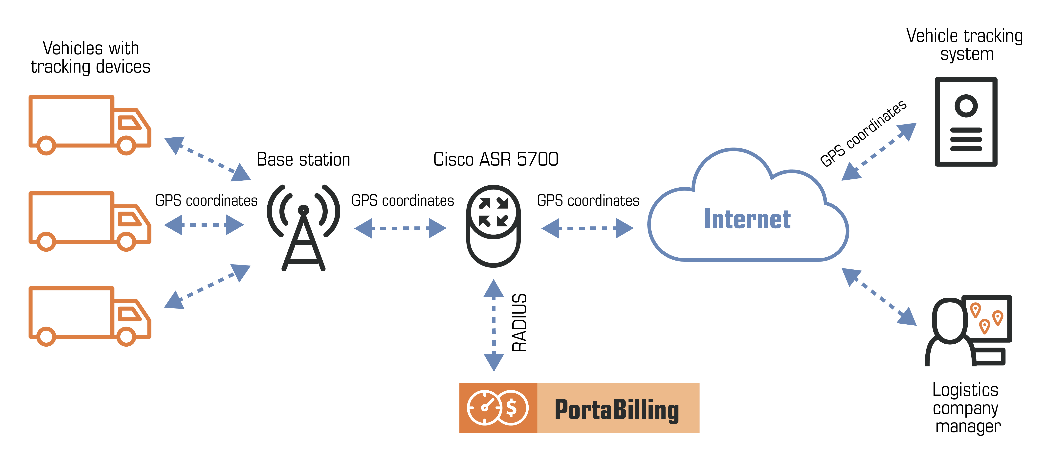PortaBilling is integrated with the Cisco ASR 5700. This is a GPRS Gateway Support Node (GGSN) that routes data traffic between a mobile network and an IP-based network (the Internet). This integration enables wireless operators to deliver M2M connectivity services, bill customers for their Internet usage, and control session availability.
Cisco ASR 5700 performs the functions of a network access server (NAS). It communicates with the PortaBilling OCS (Online Charging System) via the RADIUS protocol to authorize M2M devices and send accounting requests. PortaBilling can then perform real-time charging for Internet access services.
Consider the following example:
A logistics company wants to track its vehicles. Each vehicle has a device with a SIM card to send GPS coordinates over the Internet. When a device establishes a data session, Cisco ASR 5700 sends an authorization request to PortaBilling to verify that the account (which represents a device in PortaBilling) has sufficient funds/quota and is permitted to use the service. It periodically sends interim (also called keep-alive) accounting requests with information about the volume of consumed traffic. Based on that information, PortaBilling verifies whether a device can continue to send data. If there are no funds (or quota), Internet access is no longer available and the GPS coordinates cannot be sent.
This integration enables wireless operators to extend the variety of equipment for providing M2M connectivity services.



